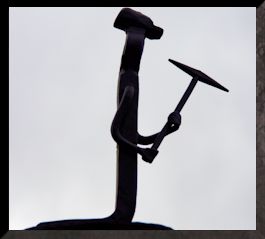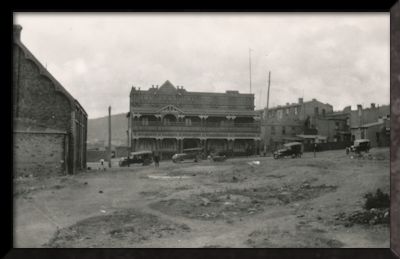|
|
|
|
||||
|
|
LITHGOW WORKMENS CLUB FORMED The Workmen’s Club is a Lithgow institution, formed on the bonds of labour, unions, socialising and beer. In its anniversary publication of 1947, an unnamed Club historian wrote:
The Lithgow Workmen’s Club and Mutual School of Arts was established in rented premises on Tank Street on 24 September 1887, with the stated aim of providing:
The fact was, the Workmen’s Club, also known as The Workmen’s Institute was soon selling more beer and spirits than any single hotel in the town. Run by a steward, the only women in the club were employed behind the bar, and as cleaners. The Club prospered and erected a new two-storeyed building, with elegant verandahs and a fine bar, on Tank Street in 1902. In 1906 licensing laws were introduced and the Club had to apply for a Certificate of Registration. Major H.E.S. Bracey and W.J. Thompson presided over a licensing hearing, at which the Secretary, Robert Vought, a committed unionist with links to many lodges, stated he had 500 members and the Club was not habitually used for the consumption of alcohol:
The Club won its case that the premises were not habitually used for the supply of liquor, the licensing inspector appealed. The stakes were high. Future premier T.R. Bavin represented the licensing inspector and the Club’s Kings Counsel was former Prime Minister and NSW Premier, and current leader of the Federal Opposition, G.H. Reid, an ally of MP Joseph Cook, represented the Club. The Secretary was obliged to admit the Club had no library and membership was declining, but the appeal was dismissed. From its inception the Club has been a vital element of the Lithgow economy. It sourced its supplies locally: beer from R.J. Inch’s Eskbank Brewery; cordials from E. Summons and Thos. Young and bread and cheese for counter lunches from Bracey’s stores. Throughout its history the club has, as the original rules demanded, supported community, political and social events. The Lithgow Mercury of 10 May 1990 claimed it as the oldest registered club in Australia. SOURCES The History and Progress of the Lithgow Workmen’s Club, Lithgow Workmen’s Club, 1947. |
|
||||
|
|
|
|


